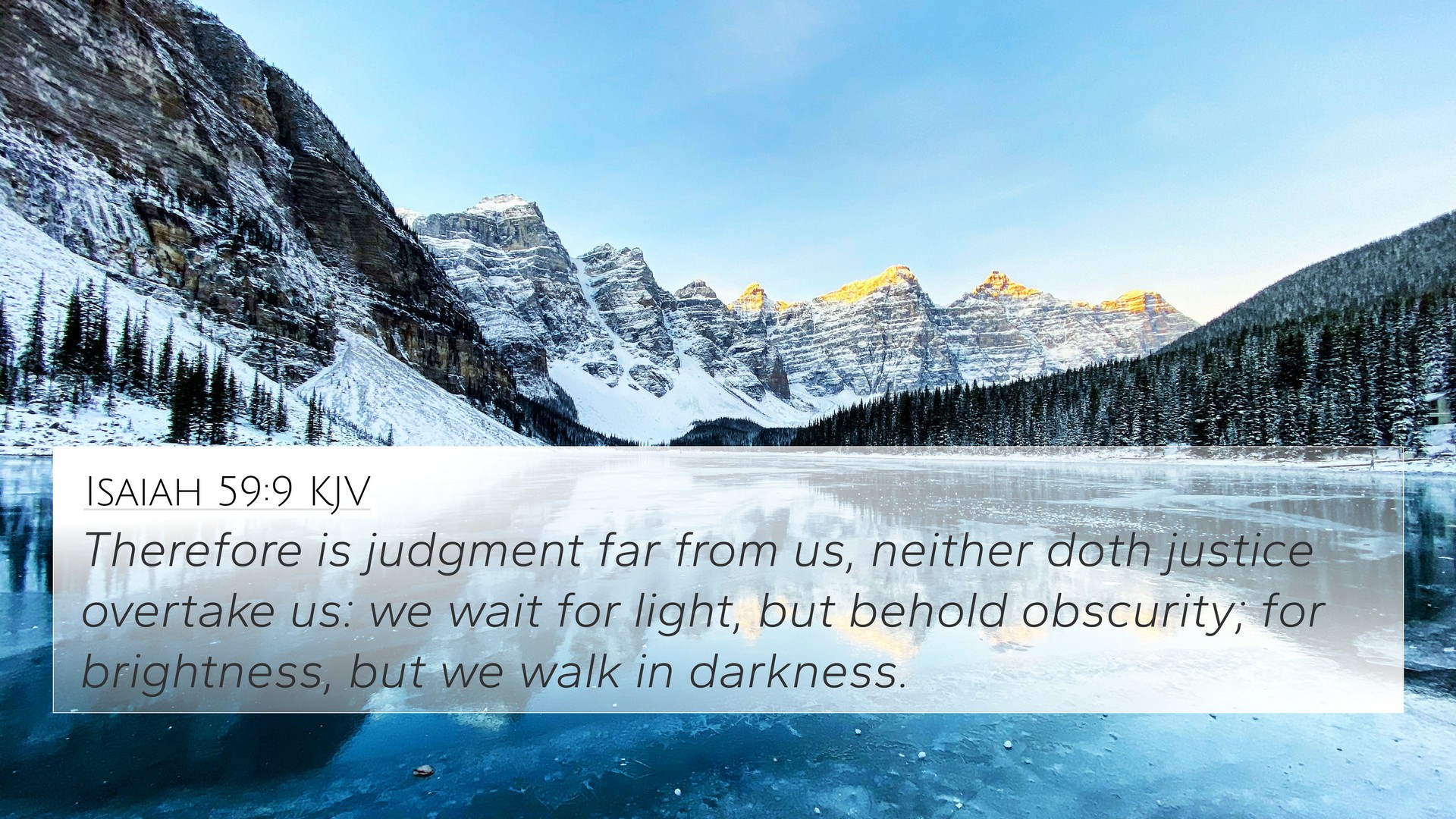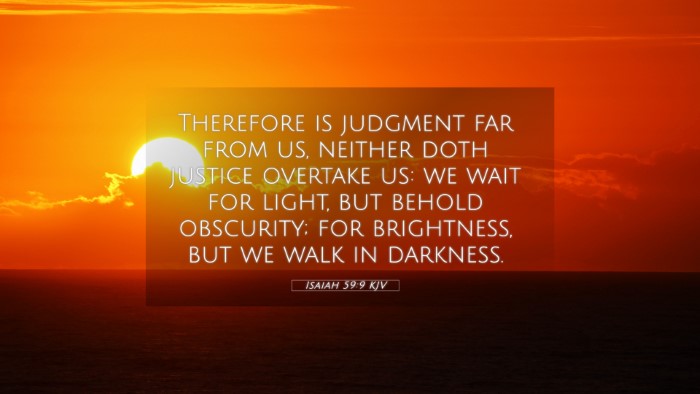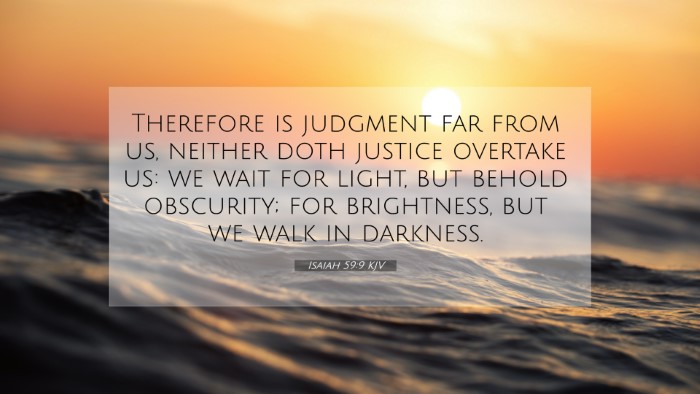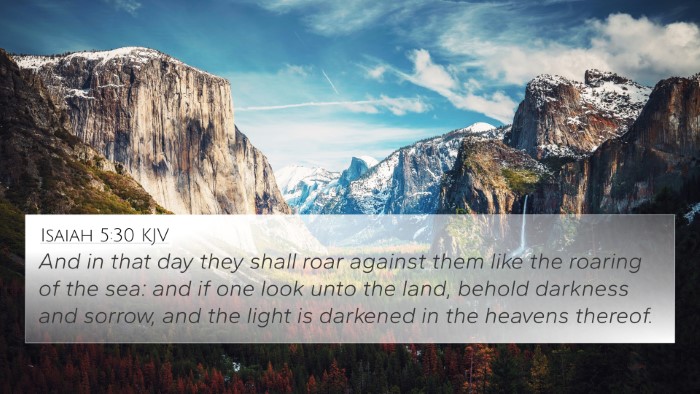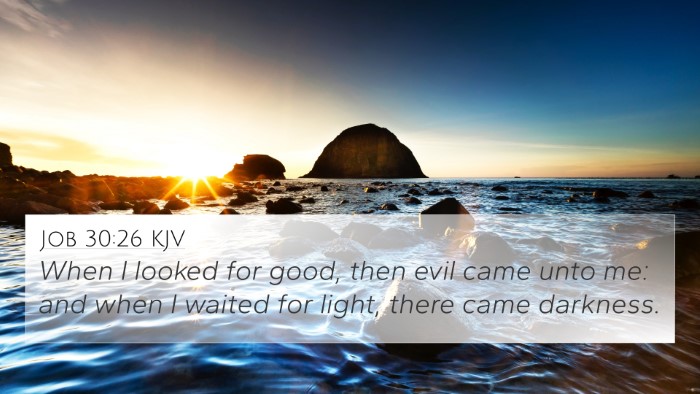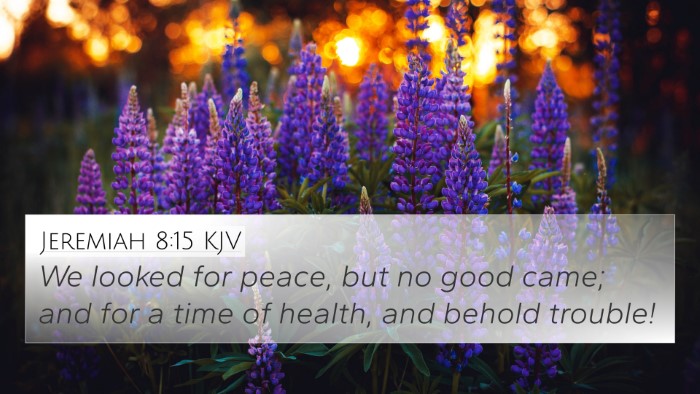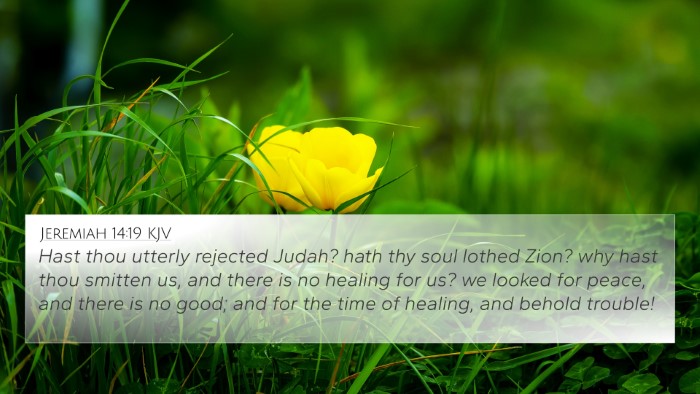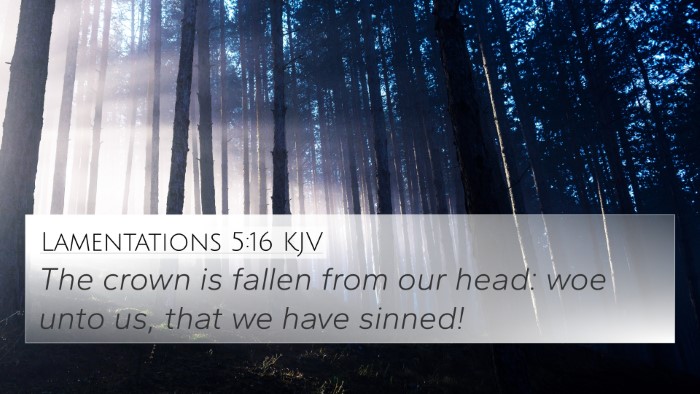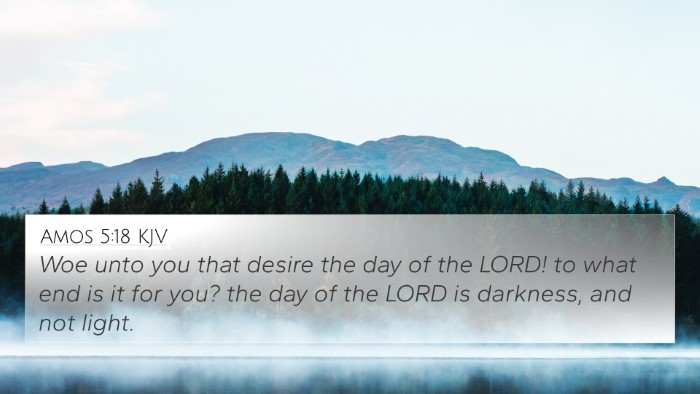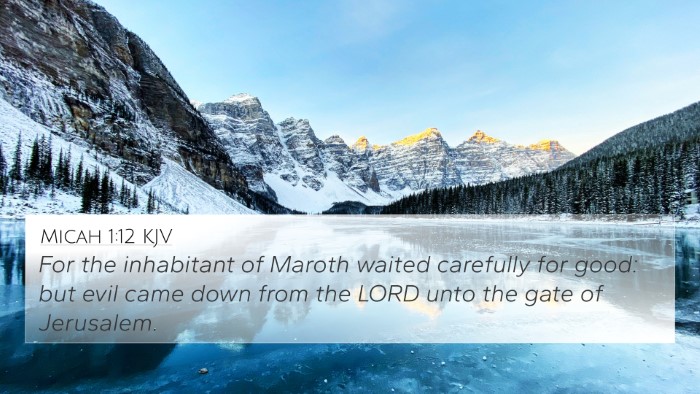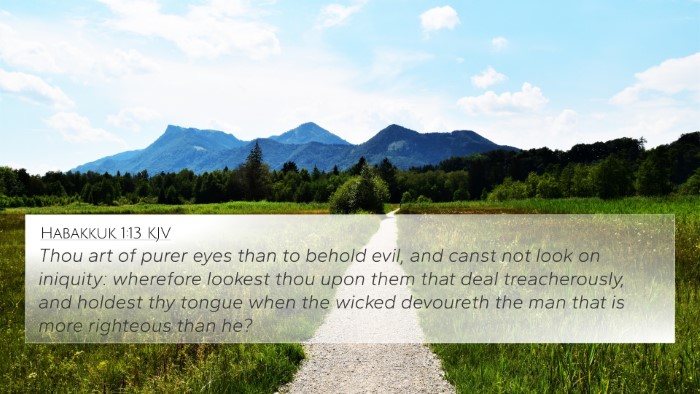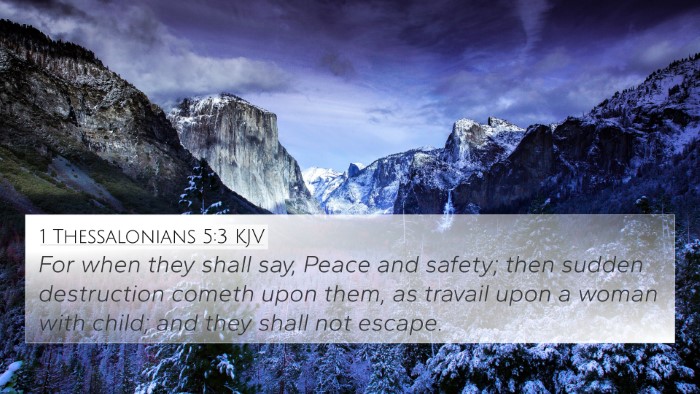Understanding Isaiah 59:9
Isaiah 59:9 reads: "Therefore is judgment far from us, neither doth justice overtake us: we wait for light, but behold obscurity; for brightness, but we walk in darkness." This verse carries profound implications about the state of injustice and spiritual blindness that beset the people of Israel.
Interpretative Insights
This passage expresses the Israelites' lament over their current condition, depicting a longing for justice and light, which seems to be perpetually out of reach. The combination of insights from various commentators helps us understand this verse in a more nuanced way.
- Matthew Henry emphasizes the contrast between the people's expectations of divine justice and the grim reality they face, pointing out that their sins have alienated them from God, leading to a situation where judgment feels distant.
- Albert Barnes notes that the statement about waiting for light symbolizes hope, which is overshadowed by darkness due to their iniquity. He reflects on the human tendency to desire righteousness yet experience a lack of it.
- Adam Clarke provides a historical context, suggesting that this verse encapsulates the spiritual blindness prevalent during Isaiah's time, where the people yearned for restoration and deliverance from their moral degradation.
Thematic Connections
The themes of judgment, justice, and spiritual blindness are prevalent throughout the Scriptures. Here are some cross-references that resonate with Isaiah 59:9:
- Psalm 74:20: "Have respect unto the covenant: for the dark places of the earth are full of the habitations of cruelty." - This verse echoes the sentiments of darkness and injustice similar to Isaiah's lament.
- Jeremiah 14:19: "Hast thou utterly rejected Judah? hath thy soul lothed Zion? why hast thou smitten us, and there is no healing for us?" - A cry for justice amidst suffering aligns with the sentiments found in Isaiah.
- Micah 3:9: "Hear this, I pray you, ye heads of the house of Jacob, and princes of the house of Israel, that abhor judgment, and pervert all equity." - This highlights the corruption and departure from justice faced by the Israelites.
- Lamentations 3:44: "Thou hast covered thyself with a cloud, that our prayer should not pass through." - The perception of divine silence amidst cries for help resonates with the hopeless feelings expressed in Isaiah 59.
- John 1:5: "And the light shineth in darkness; and the darkness comprehended it not." - This New Testament reference underscores the theme of light and darkness, directly linking to the metaphor used in Isaiah.
- Isaiah 9:2: "The people that walked in darkness have seen a great light: they that dwell in the land of the shadow of death, upon them hath the light shined." - A prophetic declaration of hope against the backdrop of despair.
- Romans 3:10-12: "As it is written, There is none righteous, no, not one." - Reflecting the universal state of sinfulness and the need for divine justice that Isaiah laments.
- 1 Peter 2:9: "But ye are a chosen generation, a royal priesthood, an holy nation, a peculiar people; that ye should show forth the praises of him who hath called you out of darkness into his marvelous light." - This New Testament affirmation offers resolution and hope compared to the despair in Isaiah.
Key Themes and Lessons
The verse and its cross-referencing Scriptures convey several important themes that are vital for understanding Biblical justice and human condition:
- Humanity's Longing for Justice: There is a universal yearning for equity and righteousness.
- Consequences of Sin: Spiritual blindness and darkness are often results of national and individual disobedience to God's commandments.
- Hope in Darkness: Despite overwhelming despair, there remains a thread of hope woven through both Testaments that points to eventual divine deliverance.
- Light as a Symbol of Salvation: The recurring motif of light signifies God's presence, revelation, and justice breaking through darkness.
Applying the Insights
For those engaged in cross-referencing Biblical texts, the insights from Isaiah 59:9 serve as an essential tool for deeper understanding:
- Utilize a Bible concordance to explore related themes of justice and judgment in other scriptures.
- Employ a cross-reference Bible study guide to systematically explore Scriptural connections that reveal God's character and intentions.
- Consider the thematic Bible verse connections between different books of the Bible, bridging the gap between the Old Testament prophets and New Testament affirmations of light and justice.
Conclusion
Isaiah 59:9 not only captures a historical lament but also serves as a profound reminder of the continuing relevance of Scripture for understanding the relationship between sin, justice, and divine intervention. By exploring connections between Bible verses, believers can gain a comprehensive understanding that informs their faith and walk with God.
This kind of comprehensive Bible cross-reference materials is crucial for anyone seeking deeper Biblical interpretations, making Isaiah 59:9 a fitting verse for study and reflection.
